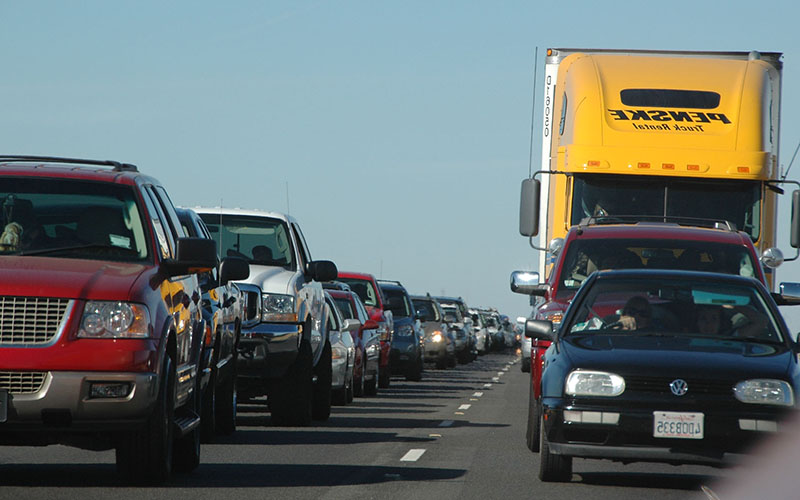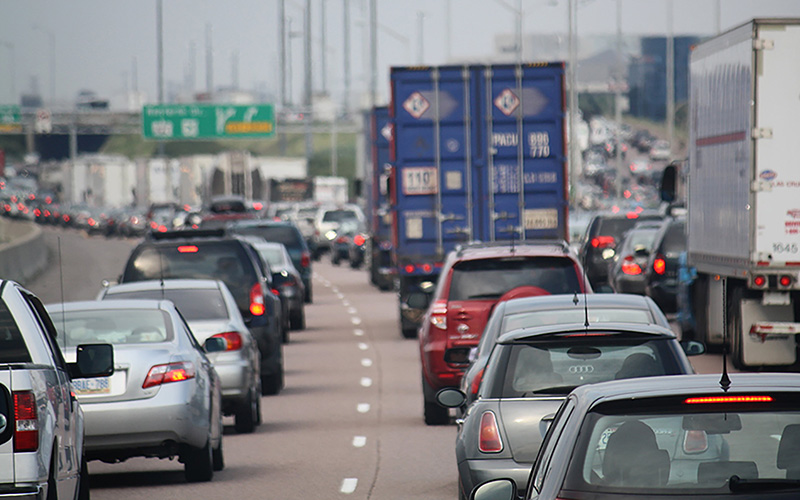
The cost of traffic jams in Phoenix and Tucson traffic averaged more than $1,000 per commuter when gas, wasted time and trucking were figured in. Still, neither city was in the top 10 nationally. (Photo by Ernesto Andrade via flickr/Creative Commons)

A traffic tie-up on a U.S. freeway. (Photo by Danielle Scott via flickr/Creative Commons)
PHOENIX – A new report examining conditions and cost-effectiveness of state highway systems ranked Arizona 29th overall. The study’s lead author said Arizona could do more to tackle congestion across metro Phoenix highways.
The annual report by the Reason Foundation, a libertarian think tank in Los Angeles, reviewed data in 13 categories, including traffic fatalities, pavement condition, congestion, spending per mile and peak hours, where Arizona ranked 36th. The state ranked sixth for condition of urban interstate pavement and fourth for the fewest structurally deficient highway bridges. Arizona’s worst ranking was 49th in urban fatalities. A breakdown of Arizona’s rankings can be found here.
To reduce congestion, Baruch Feigenbaum, lead author of the study and the foundation’s assistant director of transportation policy, recommended Arizona add new toll lanes while keeping the same number of non-toll lanes. The group’s research has found people who use toll lanes typically rely on them one to three times a week, he said.
“We’ve also found that often times it’s the middle income and working class folks who like the toll lanes because they often are in situations where they have to get somewhere on time – either they have to get to their job at a certain time or they’ve got children in day care and the day care charges extra for every minute that you’re late and so it makes a lot of sense for them to use them,” Feigenbaum said.
Only New Mexico ranked worse than Arizona in the urban fatality rate. After decades of decline, Feigenbaum said, fatality rates have been going up in Arizona and elsewhere.
“We think it’s a combination of things,” he said. “Specifically, distracted driving in terms of texting and cellphones. We also think a growing economy, there might be more travel in general, that might have an effect on the overall number of fatalities.”
The top-ranking states for overall performance and cost-effectiveness are North Dakota, Virginia and Missouri. The lowest-ranking states overall are Rhode Island, Alaska and New Jersey.
The Reason Foundation’s 24th annual Highway Report relies on data states are required to submit to the federal government as a condition of receiving federal highway funds. Feigenbaum said some of the information about highway bridges is supplemented by other sources.
This story is part of Elemental: Covering Sustainability, a new multimedia collaboration between Cronkite News, Arizona PBS, KJZZ, KPCC, Rocky Mountain PBS and PBS SoCal.
AlertMe